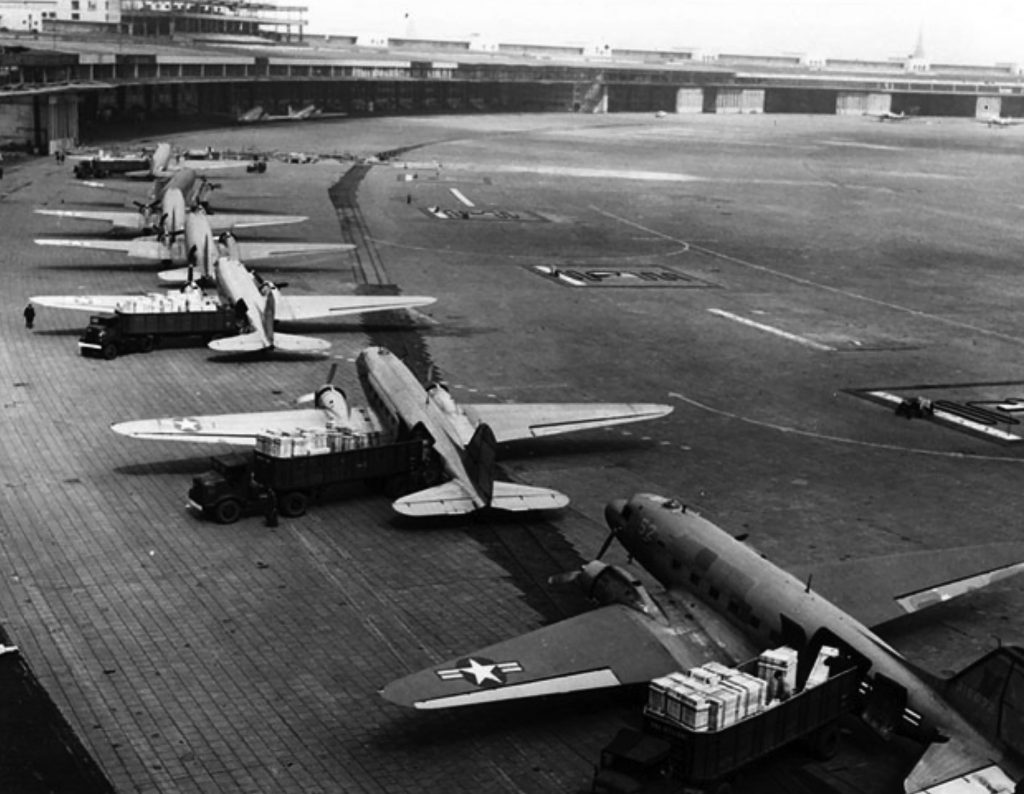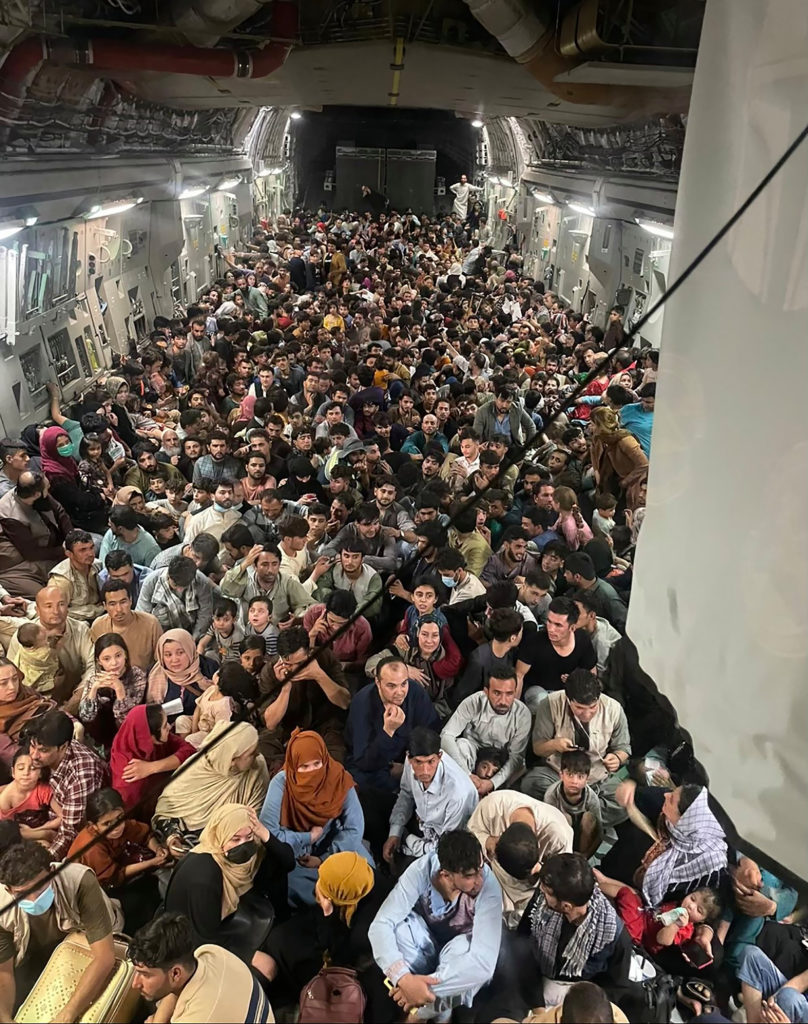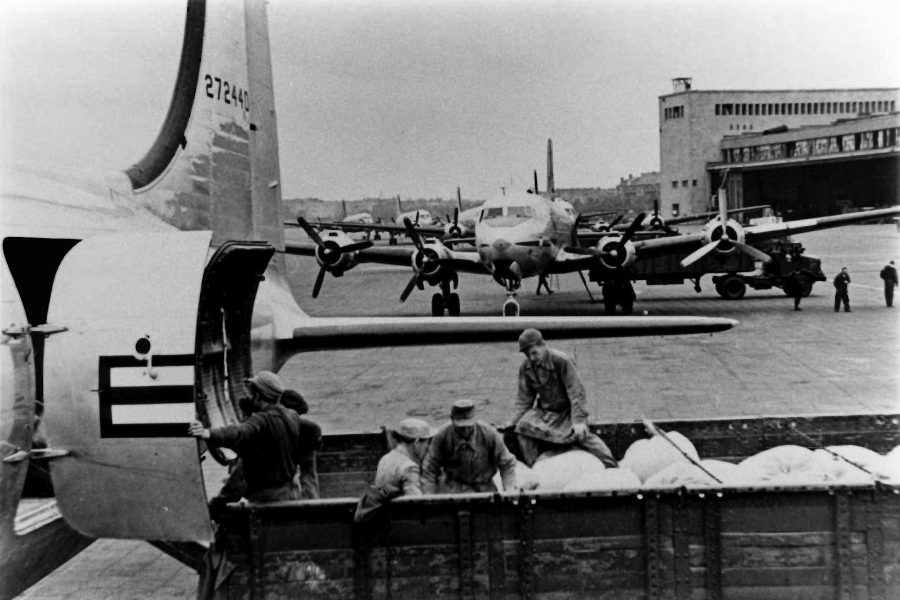Sept. 30 marks the 75th anniversary of the end of the Berlin Airlift. In the first victory of the Cold War, U.S. and U.K. Airmen flew 278,000 sorties, rescuing the people of West Berlin from starvation by blockade after Soviet forces cut off all ground access to the city. Those flights poured in 2.3 million tons of provisions, mostly food and fuel, over 15 stressful months.
Yet the strategic significance of this crucial air campaign was far greater than a massive aerial moving job. The Berlin Airlift demonstrated the criticality of harnessing prudent national security solutions when options are limited and the stakes are incredibly high. Such circumstances abound today.
While the 75th anniversary of the Berlin Airlift’s end deserves to be commemorated as a tremendous achievement, there is no guarantee we could execute such an operation today—a reality that demands attention and action. Legitimate questions regarding decisive national leadership, clear security strategies, and military depth and readiness loom over us today at a time when the U.S. arguably faces a more complex and challenging world than ever before in history.
The roots of the Berlin Airlift extend to the end of World War II, when the allies divided Germany into zones of occupation. A section of Berlin overseen by the Western allies was surrounded by a region under Soviet control. On June 24, 1948, the Soviets blockaded the city in a bid to seize control, effectively threatening to starve the city’s 2 million inhabitants until the allies capitulated.
President Harry S. Truman made a decisive call: “We stay in Berlin, period.”
Realizing that objective was far less clear, however. Initial military options included a direct attack to reopen a key highway corridor. But as this course might invite World War III, it was quickly dismissed. Airlift became the answer not due to raw power, but because it could achieve the ultimate objective: to overcome the blockade.
The airlift was an unprecedented and audacious undertaking: a non-stop parade of cargo aircraft touching down at Berlin’s Tempelhof airport every 45 seconds. Armed with Truman’s clear intent, a viable airlift strategy, and significant airlift capacity that remained in the wake of World War II, the western Allies had the tools to make it work. Individual discipline, dedication to duty, and sacrifice on the part of the aircrews did the rest.

That is what we celebrate today, 75 years later.
But the enduring tenets of that success stand apart from realities we see in today’s U.S. security enterprise.
America’s chaotic withdrawal from Afghanistan three years ago signaled the world’s despots that American will is not what it once was. Adversaries took note and have called the U.S. deterrent bluff. Russia’s invasion of Ukraine, China’s aggression in the South Pacific, and Iran’s coordinated attacks via Hamas, Hezbollah, and the Houthis should all be seen in the light of that catastrophic failure. The Houthis—relative to world powers, a flea on the tail of an ally cat—shut down the Red Sea to international commerce with no significant consequence. North Korea continues to develop its nuclear arsenal. In each case, the U.S. has responded reactively, rather than through decisive national leadership.
The notion of will directly ties to strategy. Too often these days, we see reluctant U.S. policy approaches that cede the initiative to opponents. Deterrence—the avoidance of conflict through the credible threat of a forceful response—only works if adversaries clearly believe they are held under threat. In no sport can a team win through defense alone. There comes a point where offense must come into play in order to win the contest.
These days, however, America is lacking in its ability to field an effective offense, whether measured in capability or capacity. The U.S. Air Force—descendants of the Airmen who executed the Berlin Airlift—is now the smallest and oldest in its history. Readiness is at dangerously low levels. Today’s Airmen would be significantly resource challenged to execute a major sustained operation on the scale of a 21st century version of the Berlin Airlift. Our Space Force is likewise under-resourced. So too is our Navy.
The United States must reset and rebuild the capacity and capability to answer and deter the threats now facing the nation.

The good news is that a reset is possible and the case for action is abundantly clear. America faces an array of adversaries whose objectives are directly opposed to our interests and values. Russia persists in its war of attrition against Ukraine, rattling the nuclear card as a means to deter Ukraine’s suppliers from removing limits on how western arms are used. China is designing a force expressly to counter and defeat the United States. Iran is doing all in its power to sew division throughout the Middle East.
These rivals are playing for keeps. National leadership must respond accordingly, which includes articulating the case for action to the American public. As the Berlin Airlift proved, strength is an essential pre-condition if we want to preserve peace in a very dangerous world.
The time has come as well to reinforce decisive leadership in the military. It is time to stop focusing on what adversaries are doing to us and instead pursue strategies that seize the initiative. This does not necessarily mean direct conflict, but it certainly means clearly stating positions, holding to them, and playing to win. Otherwise, U.S. credibility will be shattered.
Above all, we must sufficiently resource our men and women in uniform to answer the challenges they face. If we ask them to risk the ultimate sacrifice, we must do all in our power to equip them for success—not forgo advanced technological capability because of self-imposed and arbitrary budget caps.
America met the moment 75 years ago. The Soviets relented and the routes into West Berlin were reopened. We must meet the moment again today. Too much is at risk to consider any other course.
Lt. Gen. David A. Deptula is the Dean of the Mitchell Institute for Aerospace Studies. Douglas A. Birkey is the institute’s Executive Director.


